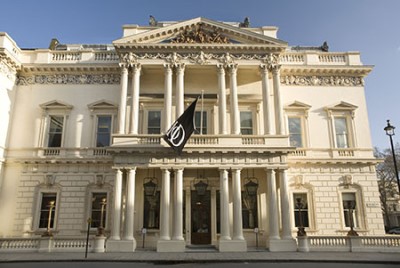
The IoD’s Directors’ Economic Confidence Index for February 2022 is -4. This is similar to the levels shown every month since October 2021, with the exception of December when concerns around Omicron pushed the index lower. It means slightly more business leaders are pessimistic about prospects for the UK economy in the next 12 months than are optimistic.
However, for the first time since 2020, the ‘Coronavirus outbreak’ and ‘UK economic conditions’ have fallen out of the top three concerns of business leaders, to be replaced by energy prices and employment taxation.
- 44% say that energy costs are having a negative effect on their organisation, up from 28% in July 2021 and only 15% a year ago.
- 40% say that employment taxes are having a negative effect on their organisation, up from 26% in July 2021 before the announcement of the forthcoming rise in national insurance contributions
- Inflation expectations have risen sharply since January: 31% now expect inflation to be running at over 6% at the end of 2022, compared to 18% a month ago.
- Wage expectations are also rising: two thirds of all organisations (66%) now expect wages to rise in the next year, up slightly from 64% in January.
- However only 35% said that the coronavirus outbreak is having a negative effect on their organisation, down from 50% in January.
- Expectations of future revenues, costs, investment and employment are all steady on the month.
The poll was in the field between 11th-28th February 2022, with the majority of responses received before the deterioration in the situation in Ukraine.
Kitty Ussher, Chief Economist at the Institute of Directors, said:
“The good news is that business concerns about the impact of the pandemic are alleviating, but unfortunately these have been replaced with new uncertainties around the cost of energy, the rise in employment taxation and rapidly increasing expectations of inflation.
“Overall therefore we are seeing little change in the confidence of business leaders around the future prospects for the UK economy, with slightly more business leaders expressing pessimism than optimism for the twelve months ahead. This nervousness is less than we saw during the parliamentary logjam over Brexit negotiations in 2018-19, but is much more downbeat than when restrictions eased in the summer of last year.
“Most of our survey responses were given before the situation in Ukraine deteriorated, so any impact from the conflict on the UK business operating environment will not come through until our March results.”